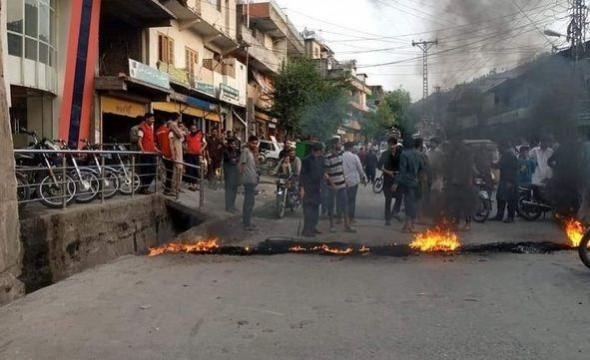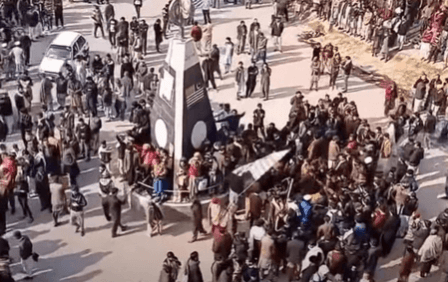
As protests sweep through Pakistan-occupied Jammu & Kashmir (PoJK), the cries of its people demanding basic rights are being met with bullets, tear gas, and a suffocating silence from authorities. While the government in Islamabad blames "external forces" for the unrest, the ground reality points to a population frustrated by decades of neglect, economic exploitation, and political repression.
Over the past week, demonstrations led by the Jammu and Kashmir Joint Awami Action Committee (JAAC) have spiraled into violent clashes across Muzaffarabad, Kotli, Dhirkot, and Dadyal. Police firing left at least a dozen civilians dead and scores injured, exposing the deepening gulf between PoJK's residents and the Pakistani state that claims to represent them. Despite repeated calls for reforms — from fair electricity tariffs to free healthcare and education — the government's response has largely been to muzzle dissent.
"Azadi" without freedom
For decades, PoJK has been paraded as "free Kashmir" — in Pakistan's political vocabulary that is. Yet, for locals, the phrase rings hollow. Protesters say they are not even allowed to express their grievances without being branded as traitors or foreign agents. Sit-ins, long marches, and strikes have been met with brute force, with Islamabad quick to dismiss legitimate demands as part of some "Indian conspiracy."
"It is ironic that while Pakistan accuses others of atrocities, its own forces are shooting at unarmed civilians in PoJK," said Shaukat Nawaz Mir, a central leader of JAAC. His words echo the frustration of thousands who feel abandoned and voiceless in a territory presented to the outside world as a model of freedom.
A total media blackout
Adding to the repression is a near-total media silence. Local journalists face intimidation, internet blackouts are frequent, and coverage of the protests is deliberately minimized in mainstream Pakistani outlets. This has left PoJK residents with little recourse but to amplify their voices through diaspora groups and protests abroad. In London, JAAC workers staged demonstrations outside the Pakistan High Commission, accusing Islamabad of silencing its own people.

"The world sees Pakistan as the champion of Kashmiris, but when it comes to PoJK, its guns are turned inward," one protester in London remarked.
The "external hand" narrative
The Pakistani establishment's reflexive response has been to blame "external forces." Officials in Islamabad insist that unrest in PoJK is orchestrated by hostile agencies, echoing the same rhetoric used for decades to deflect from insurgencies in Balochistan or militancy in Khyber-Pakhtunkhwa. Analysts, however, argue that this externalization of blame is a convenient way to avoid accountability.
"What is happening in PoJK is an indigenous uprising against poor governance, economic deprivation, and political exclusion. To label it as foreign interference is not just inaccurate — it is an insult to the people's suffering," said a South Asia political analyst based in New Delhi.
Silence beyond borders
Perhaps the most striking aspect of the crisis is the silence surrounding it. While Pakistan routinely raises the issue of Kashmir at international forums, few global actors have spoken about the killings in PoJK. Even more notable is the silence from the Muslim world. The Organisation of Islamic Cooperation (OIC), which has convened special sessions on Gaza and repeatedly issued statements on Kashmir, has yet to address the bloodshed in PoJK.
"This selective outrage shows that the suffering of Muslims in PoJK is less politically useful on the global stage," said an observer of OIC affairs.
Despite a notice inviting JAAC leaders for talks, tensions remain high. The PoJK administration has also warned of strict action if protests continue, raising fears of further clashes. For the people, however, the demand is clear: they want dignity, rights, and accountability from a state that claims to represent them.
As one local activist put it: "We don't want to be pawns in Islamabad's games. We want electricity, education, jobs, and the right to speak without fear. Is that too much to ask?"
For now, PoJK stands at a crossroads — its people demanding justice, its rulers responding with denial, and the world largely looking away. The question is not whether the grievances are real, but how much longer they can be ignored.

















